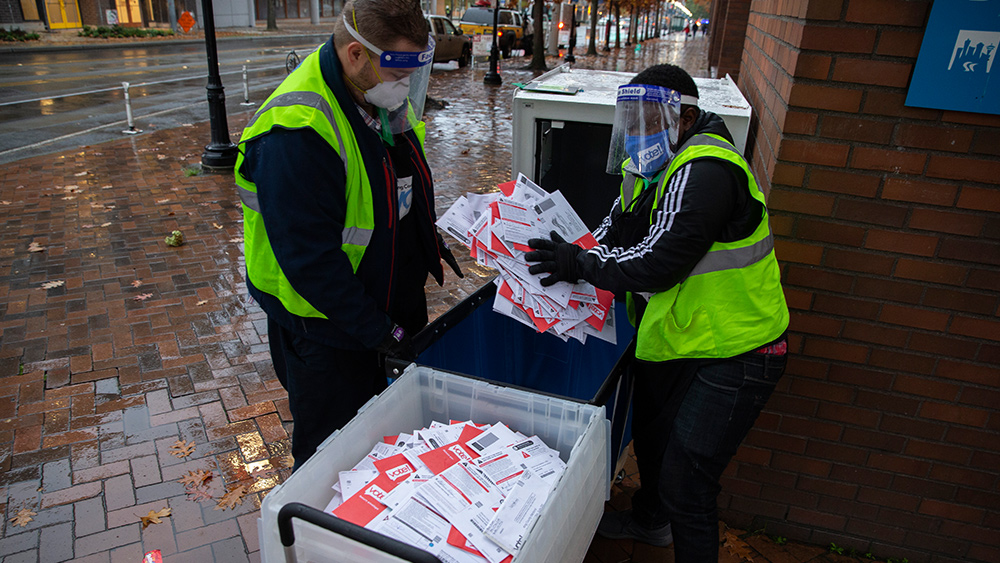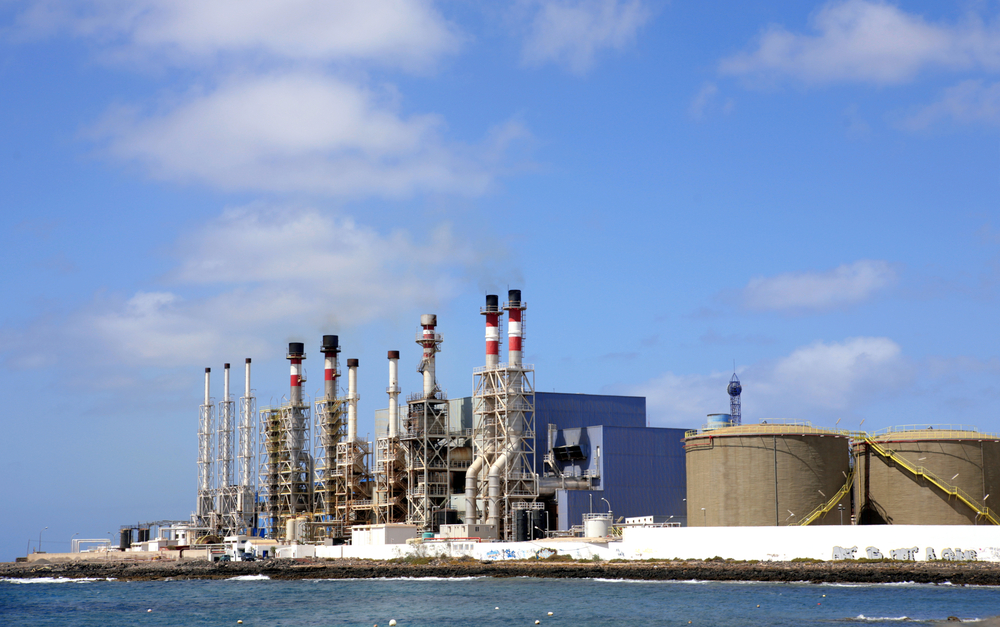Record-high diesel prices affecting US-Mexico trade, leading to more inflation
05/17/2022 / By Arsenio Toledo

Truckers continue to struggle as diesel prices in the United States hit record levels.
On Thursday, May 12, the average price of diesel in the U.S. hit a record-high of $5.62 a gallon, an increase of nearly 20 cents from a week ago. This also represents an increase of more than $1.50 a gallon from roughly two months ago. (Related: Biden administration cancels gas lease opportunities despite soaring fuel prices.)
U.S. commercial vehicles, including big rigs, use about 36.5 billion gallons of diesel and spend over $100 billion on diesel fuel.
“It’s coming directly out of my profit,” said Rodney Morine, an independent trucker. “The customers are trying to get everything back to pre-COVID rates, but fuel is a lot higher now.” According to Morine, fuel prices have gone up “easily 25 percent or 30 percent.”
In response to the rising diesel prices, some of the larger trucking companies in Mexico delivering goods across the border have increased their rates. According to Maria Teresa Torres, a pricing and procurement manager for cross-border digital logistics platform Nuvocargo, many companies are now charging five percent instead of the old import rate of three percent.
“Diesel is one of the most important components within any land freight rate since it represents approximately 30 percent of the total price,” said Torres.
“The price increase in fuel represents an expense that carriers have to pay before shipping. Southbound rates are rising and getting closer to export costs. We are currently dealing with an important increase in import rates, not only because of the fuel price increase, but mainly due to limited capacity and driver shortage.”
Other important factors affecting freight rates include wait times, delays and stays and the price of goods in the rapidly inflating market. These can also indirectly affect import rates.
Mexico provides subsidies, suspends some taxes in bid to control inflation and keep truckers from going broke
About 80 percent of the trucking fleet in Mexico is made up of small trucking companies or owner-operators. Unfortunately for these small and independent truckers and companies, Mexico imports around 80 percent of its fuel from the United States.
The Mexican government is offering its trucking industry fuel subsidies to offset operating expenses. Last year, diesel prices stood at about $4 a gallon in Mexico. As of May 13, diesel cost about $4.31 a gallon.
“Although the increase is not as considerable as in the United States since the Mexican government has subsidies, it is still detrimental as it implies an increase in rates, as well as other operational issues,” said Torres.
These fuel subsidies are important to the industry as they can keep freight rates low enough to keep clients from looking for cheaper alternatives. Mexican truckers are also more likely to demand fuel surcharges so they don’t experience steep losses from the fuel price increases.
“A decisive factor for customer attraction is lower rates, and how long they can be maintained,” said Torres. “Although fuel surcharges need to be applied in Mexico, price uncertainty is a major concern for shippers. This is because, due to the fuel price increase, there’s a direct impact on the final price for consumers. Fuel surcharges – instead of fixed rates – help avoid financial losses for parties involved in the supply chain.”
All of these factors are severely affecting the price of goods once they reach U.S. groceries. For its part, Mexico has waived import duties for one year on a range of household staples, including many food items, in a bid to curb inflation. Some of the affected products include corn, rice and beans, and even livestock imports like cattle, pigs, sheep, goats and chicken.
For more stories about soaring fuel prices, head over to FuelSupply.news.
Watch this episode of the “Health Ranger Report” as Mike Adams, the Health Ranger, lays out the timeline for the coming shortages of food and diesel America will experience.
This video is from the Health Ranger Report channel on Brighteon.com.
More related stories:
Oil-producing giants warn of dwindling energy supply worldwide as fuel prices hit record highs.
The media is mentally preparing the American public for mass fuel shortages and rolling blackouts.
Gas prices hit new all-time high as Biden administration’s measures fail to make a difference.
Now we are being warned that shortages of diesel fuel and electricity are coming in the months ahead.
Sources include:
Submit a correction >>
Tagged Under:
big government, diesel prices, diesel shortage, diesel supply, economic crash, economy, energy supply, fuel prices, fuel shortage, fuel supply, Inflation, Mexico, oil supply, products, supply chain, supply chain crisis, trade, truckers, trucking, US
This article may contain statements that reflect the opinion of the author
RECENT NEWS & ARTICLES
COPYRIGHT © 2017 BIG GOVERNMENT NEWS




















